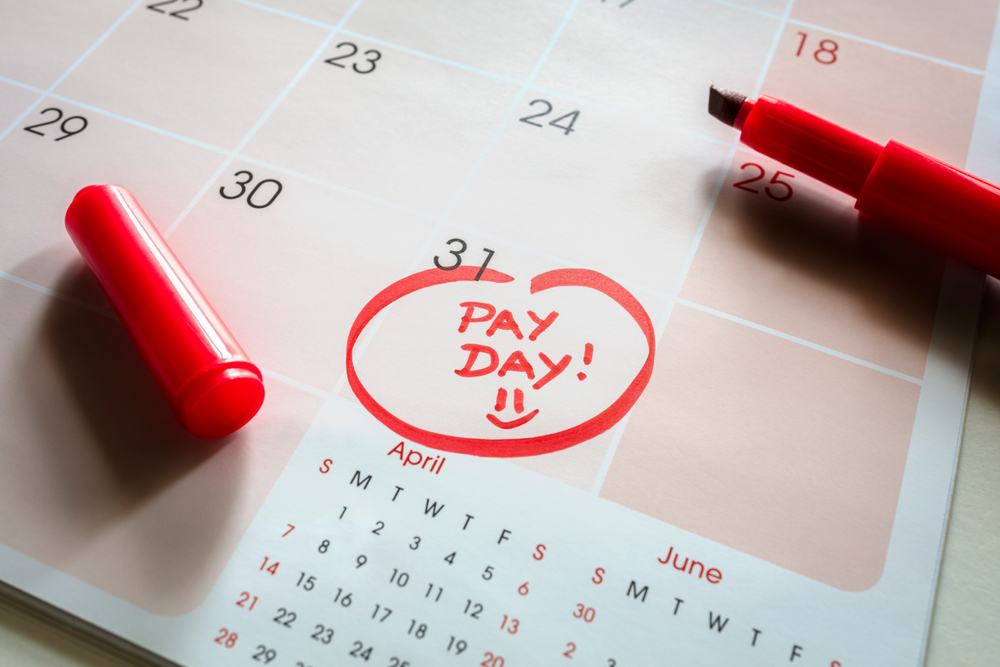
Living paycheck-to-paycheck still is a reality for many households, even as expenses and economic pressures keep rising. It’s not just about money—it’s about the daily stress and emotional toll that comes with it. When you’re always waiting for the next payday, even small surprises can feel overwhelming. This cycle can trigger anxiety, making it hard to focus or plan for the future. Understanding these triggers is the first step to breaking free from the stress that comes with living paycheck to paycheck.
1. Unexpected Expenses
One of the biggest anxiety triggers for people living paycheck-to-paycheck is still unexpected bills. Whether it’s a car repair, medical emergency, or home maintenance, even a small, unplanned cost can throw your budget into chaos. The fear of not having enough to cover these expenses can keep you up at night.
2. Fear of Job Loss
When you have no financial cushion, the thought of losing your job is terrifying. Living paycheck-to-paycheck still means that even a short period without income could lead to missed bills, eviction, or worse. This constant worry can drain your energy and impact your performance at work.
3. Rising Cost of Living
Inflation and rising prices for essentials like groceries, gas, and utilities make it even harder to stretch each paycheck. If your income isn’t keeping up, you may feel like you’re falling further behind, which can cause persistent anxiety about meeting your basic needs.
4. Overdraft and Late Fees
When your account balance is always low, it’s easy to slip into overdraft or miss a payment. These fees add up quickly, making it even harder to get ahead. The stress of watching your balance and worrying about bank fees is a constant companion for many living paycheck-to-paycheck.
5. Lack of Emergency Savings
Not having an emergency fund is a major source of stress. Without any savings, you’re always one emergency away from financial disaster. This ongoing risk is a huge anxiety trigger and makes it hard to feel secure in your day-to-day life.
6. Social Pressure
It’s tough when friends or family want to go out or plan trips, and you know you can’t afford it. The pressure to keep up can lead to guilt, embarrassment, or even spending money you don’t have. Living paycheck-to-paycheck can still make social situations uncomfortable and stressful.
7. Credit Card Reliance
Many people turn to credit cards to cover gaps between paychecks. While this can provide short-term relief, it often leads to mounting debt and high interest payments. The cycle of borrowing and repaying can create a constant sense of dread and anxiety.
8. Difficulty Planning for the Future
It’s hard to think about retirement, buying a home, or even taking a vacation when you’re struggling to cover today’s bills. Living paycheck-to-paycheck still makes long-term planning feel impossible, which can be discouraging and stressful.
9. Impact on Mental Health
Financial stress doesn’t just affect your wallet—it can take a toll on your mental health. Anxiety, depression, and trouble sleeping are common among people living paycheck-to-paycheck still. The cycle of worry can feel never-ending.
10. Relationship Strain
Money problems are one of the top causes of tension in relationships. When you and your partner are both anxious about making ends meet, arguments and resentment can build. This added strain can make living paycheck-to-paycheck still even more difficult to handle.
11. Limited Access to Opportunities
When every dollar is accounted for, it’s hard to invest in yourself or your future. Whether it’s a class, a business idea, or a move for a better job, living paycheck-to-paycheck still means many doors stay closed. This realization can be a major source of anxiety and frustration.
Breaking the Cycle of Living Paycheck-to-Paycheck Still
If you’re living paycheck-to-paycheck still, you’re not alone—and it’s not hopeless. Small steps like tracking your spending, building a basic emergency fund, or finding ways to increase your income can help reduce anxiety over time. Even minor changes can make a difference in your sense of control and security.
There are resources that can help, from budgeting apps to community programs and online financial education. For more ideas, check out practical tips from the CFPB or explore advice on breaking the paycheck-to-paycheck cycle. Remember, taking action—no matter how small—can help lower anxiety and give you hope for the future.
What anxiety triggers have you faced while living paycheck-to-paycheck, and how have you managed them? Share your thoughts in the comments below.
What to Read Next…
- 10 Signs You’re Living Above Your Means Without Realizing
- Are These 6 Helpful Budget Tips Actually Ruining Your Finances?
- Are These 8 Money Saving Tricks Actually Keeping You Broke?
- 7 Tactics Grocery Stores Use to Keep You From Thinking About Price
- Are Budgeting Apps Designed to Push You Into Debt?
The post 11 Anxiety Triggers Caused By Living Paycheck-to-Paycheck Still appeared first on The Free Financial Advisor.







